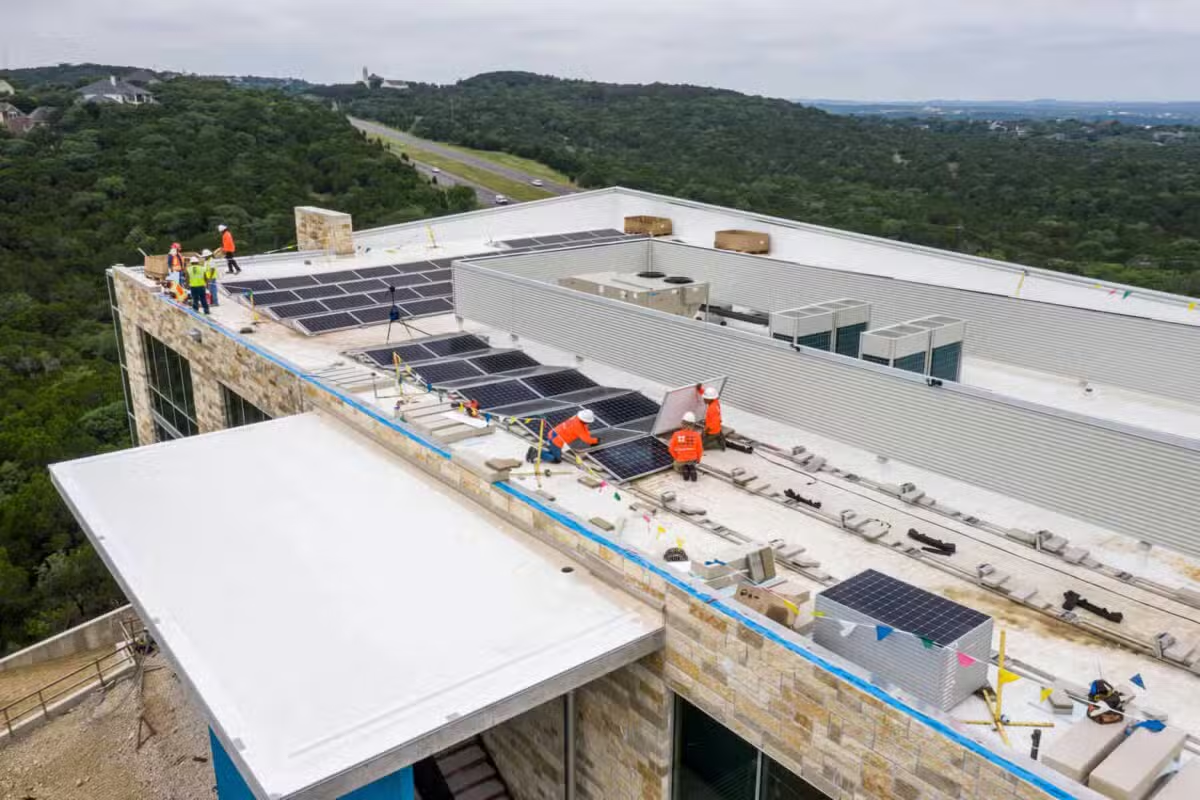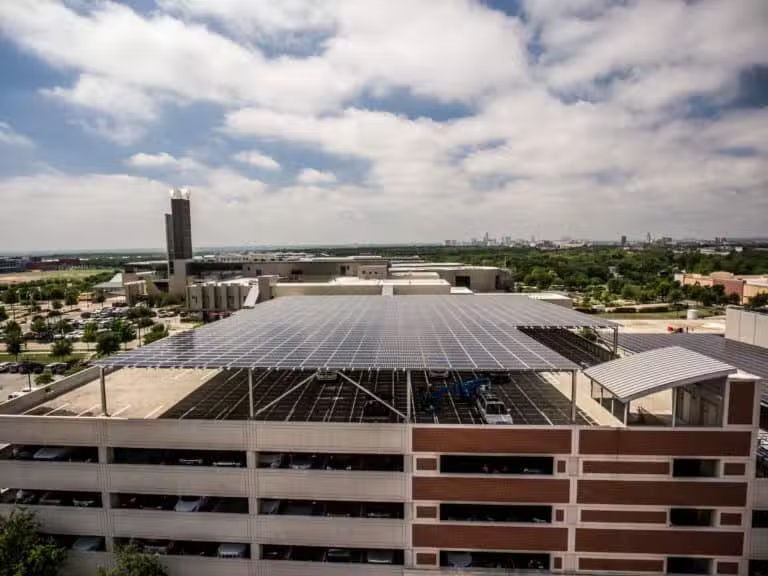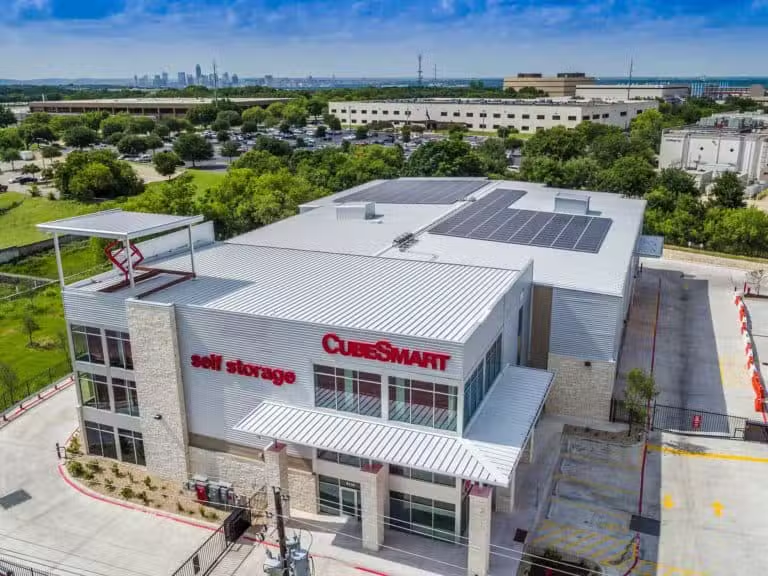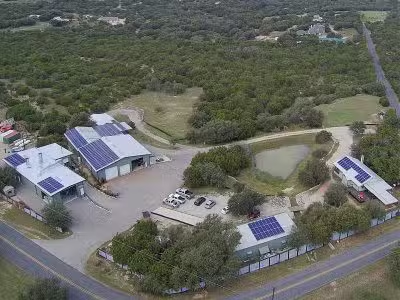COMMERCIAL SOLAR CALCULATOR, PAYBACK, ROI, AND SAVINGS
Businesses are increasingly realizing the monetary benefits of installing commercial solar panels. With a payback in the mid-single digits and a typical internal rate of return (IRR) exceeding 10%, most companies find that solar makes sense purely as a financial investment. There are other intangible benefits that can further improve the economics, such as employee recruiting and retention, customer attraction and loyalty, reputation in the community, and competitive differentiation.


How Can Solar Power Help With Rising Costs?
That’s where renewable energy, such as solar energy enters the picture. When you’re using a free and inexhaustible source of energy, your bottom line is less affected by energy market fluctuations. As a result, you can drastically reduce monthly electricity bills. Those savings can then be redirected back into your organization, making solar energy a true investment for your business.
Still, the decision to install solar is a big one. The upfront costs of a commercial solar panel system, including equipment costs and installation, may appear to be a significant investment. However, in order to recoup your initial investment as quickly as possible, you need a partner who will help you both select an appropriate system for your facilities and help you maximize your return on investment.
Your Full-Service Solar Energy Partner
At Design My Solar, we’re more than a commercial solar panel installer. We offer full end-to-end solar solutions and complete project management from start to finish, across all 48 states in the United States. Our services include free site analysis, engineering and design services, financing, rebate application, installation, permitting, inspections, monitoring, and ongoing service and maintenance.
Companies like Whole Foods, Office Depot, Cube Smart Storage, The University of Texas at Austin, and Strictly Pediatrics Surgery Center turn to us for commercial solar panels in order to lower operating costs, reduce tax liability through government credits and accelerated depreciation, and grow revenues by differentiating from competitors.

WANT TO KNOW MORE?
Begin a FREE Consultation.
- Send us your info.
- We’ll contact you to schedule an appointment.
- An energy consultant will meet with you at your home, place of business or virtually.
- You will get a custom proposal with system size, design, costs, financing, and savings.
Why should businesses go solar?
Solar panels are a smart investment in renewable energy to lower your tax liability, reduce your operating expenses, and further your sustainability goals and marketing efforts.
For many businesses, solar is primarily a financial decision. The cost of solar installation is partially offset by federal and local incentives including solar tax credits, depreciation, grants such as the Rural Energy for America Program (REAP) managed by the USDA, and rebates.
An investment in commercial solar power provides a strong internal rate of return (IRR) and a more favorable payback period than most residential systems.
Growing numbers of businesses in the United States are seeing the financial and environmental benefits of solar energy, leading to a record 19 gigawatts of solar projects installed as of June 2022, more than half of which has come since 2020. Companies such as Walmart, Apple, and Amazon are leading the way, with growth across many corporate sectors.

Benefits of Solar

Reduced operating costs by saving on electricity bills

Lower tax liability with the federal solar investment tax credit and accelerated depreciation

High internal rate of return on a long-term warrantied asset
What Types of Companies Should Go Solar?
As one of the national leaders in the solar market industry, we’ve had the privilege of working on solar projects with some of the most esteemed businesses in a wide range of industries. In our experience, commercial sectors that benefit from solar include:
- Agriculture
- Architects, engineers & contractors
- Auto dealerships
- Education & nonprofits
- Enterprise
- Government & Military
- Healthcare
- Hospitality (hotels & restaurants)
- Local business
- Manufacturing, distribution & storage
- Multi-family & assisted living
- Office buildings
- Retail
- Water districts
Other Considerations
You’ll need to consider additional factors when evaluating solar for your business. Businesses that make a good fit for solar:
- Own the building or property and have a large unobstructed area on the roof or grounds
- Have a roof that is in good condition (for rooftop solar)
- Have higher electrical loads during the day and/or the summer
- Have a passthrough ownership structure with significant tax liability
Solar may not make as much financial sense for companies with shaded facilities, a roof or electrical service that requires repair or upgrade, or who do not have the capital to invest in a system upfront. Financing options are available but typically require a down payment.
WANT TO KNOW MORE?
Request a Site Analysis.
- Send us your info.
- We’ll contact you to schedule an appointment.
- An energy consultant will meet with you at your home, place of business or virtually.
- You will get a custom proposal with system size, design, costs, financing, and savings.